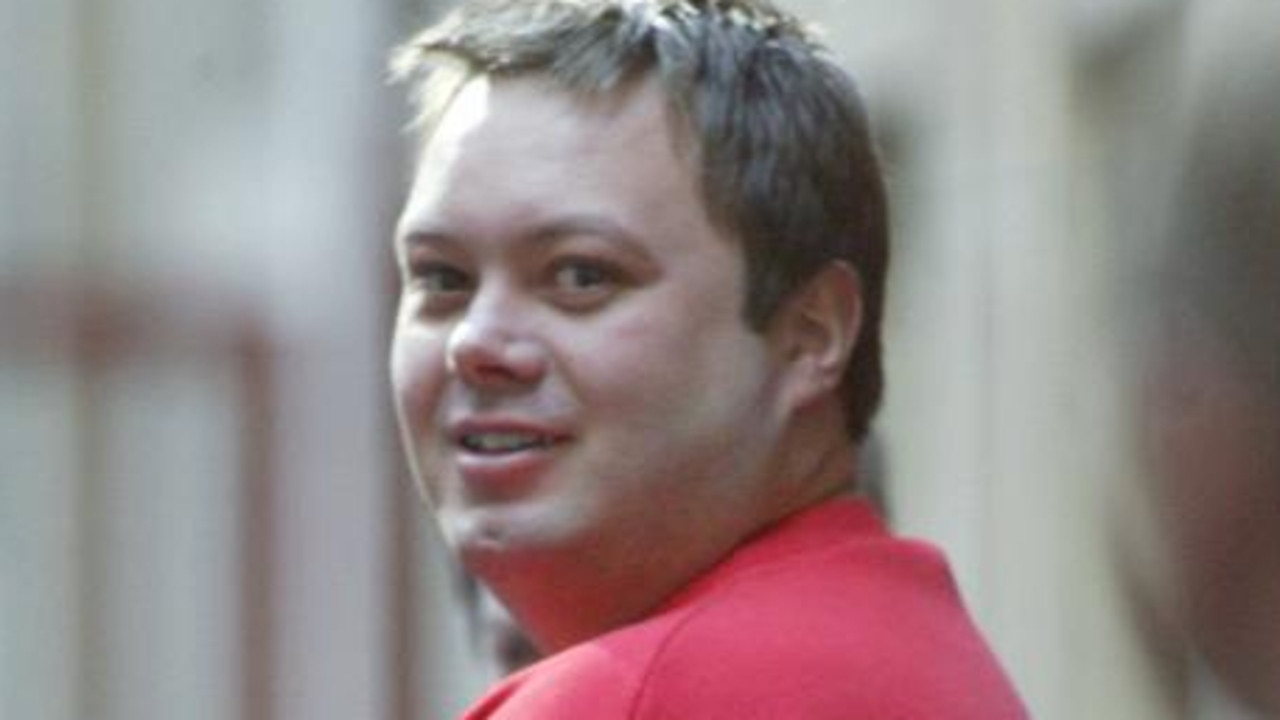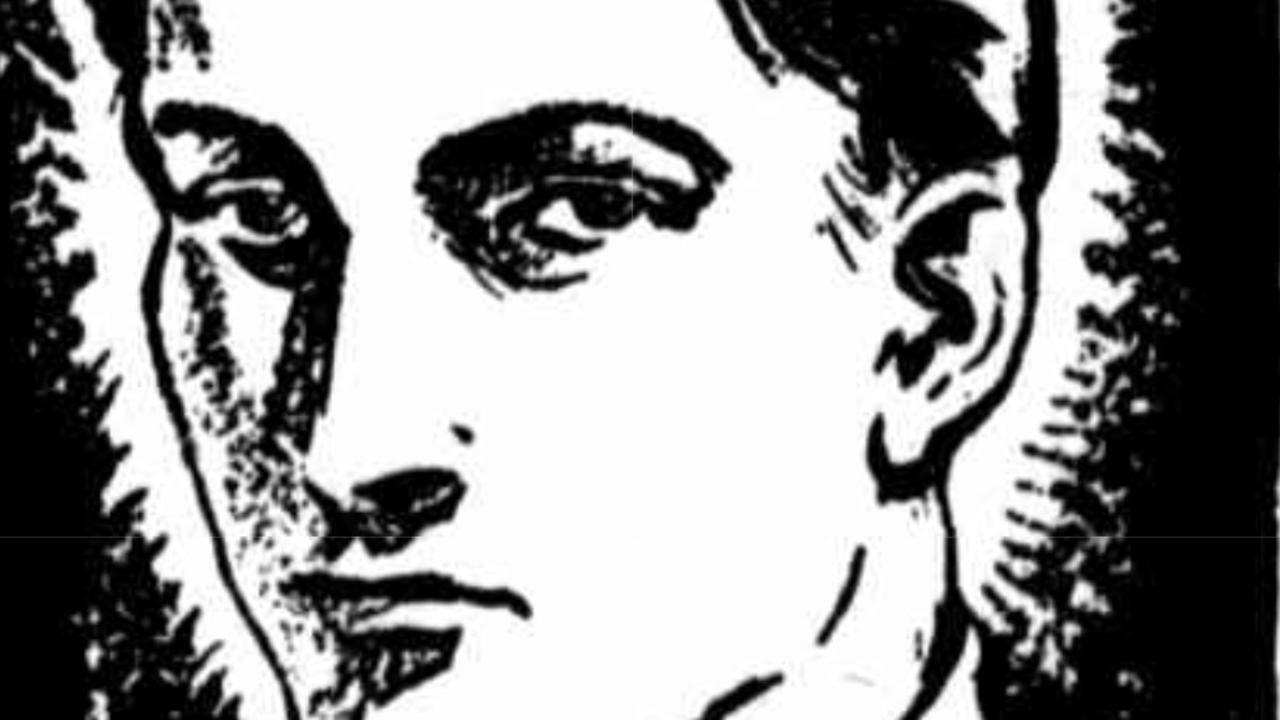Klaus Andres murdered his wife and dissolved her body in acid
LI Ping Cao vanished in October 2011. Several weeks later, her husband Klaus Andres was charged with her murder. But it was what Andres did after the killing and how he reacted that shocked Australia.
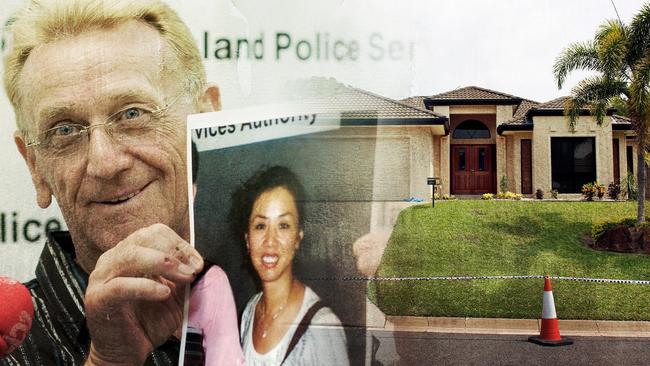
Our Criminal History
Don't miss out on the headlines from Our Criminal History. Followed categories will be added to My News.
CAIRNS woman Li Ping Cao vanished in October 2011. Several weeks later, her husband Klaus Andres, was charged with her murder.
It was a stomach-churning case that shocked Australia. Andres had killed his wife, then reported her missing. He even fronted the media asking for help finding her.
But Li Ping Cao was already gone.
Killer mum’s explanation: God ‘helped my kids die’
Locked up: The killers who thought they got away with murder
Andres was seen at Bunnings buying 20 litres of hydrochloric acid using Ms Cao’s credit card. He used that acid to dispose of her body.
Ms Cao had been killed, and her body put in a wheelie bin full of acid. All that police could find of her were 10 porcelain teeth in a drain outside the couple’s suburban Cairns home.
Andres denied killing his wife. In 2014, he was found guilty of murder and sentenced to life in prison.
THE HUSBAND: SOMETHING WAS NOT QUITE RIGHT
THERE was just something about him that seemed a little “off”.
His diminutive frame hovered in the doorway, his thick German accent tripping over tricky English sentences.
What he was saying just wasn’t ringing true to the two Cairns detectives as they gazed around his suburban Brinsmead house.
There was a faint, almost clinical smell in the air, which neither could immediately put their finger on.
The three-bedroom house was spotlessly clean, almost to the point of being obsessively neat.
This pair were no strangers to missing persons cases.
Both experienced detective sergeants, Brad McLeish and Josh Riles had this type of conversation with countless families before.
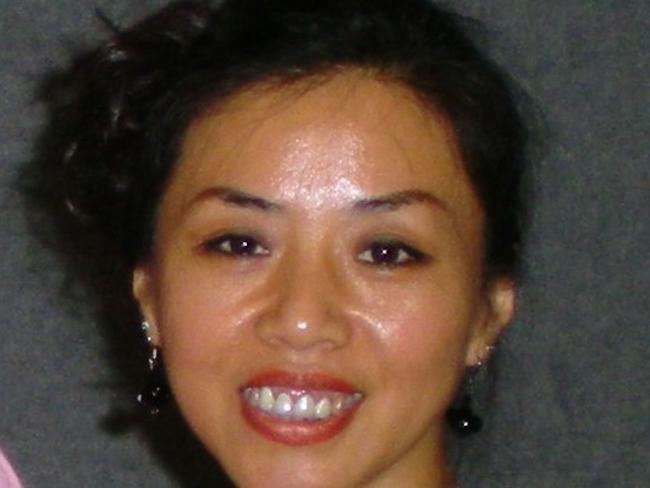
They knew there was no “normal” way someone acted when a loved one vanished.
But this was something different and Klaus Andres’ behaviour from the very beginning was the antithesis of what one would expect of a grieving spouse.
They knew something was up from the very start.
But just what they would uncover in the coming weeks was like nothing they could have predicted.
This small, slightly slumped, elderly pensioner resembled nothing of the cold, calculating and downright insidious monster they would later reveal him to be.
However, the cracks had been in place for a long time, well before his bride of five years Li Ping Cao disappeared in October 2011.
“He was just an odd person to tell you the truth,” neighbour Josh Hobbs recalled.
“We’d had run-ins with him in the past, just over the fence.
“He was just a really loose character, I guess. Just a psycho.”
FOLLOW: True Crime Australia on Facebook and Twitter
Mr Hobbs’ former Taringa Street home backed directly onto the Chapel Close house Andres had moved into with Ms Cao in July 2009.
The pair had married in 2006, just over a year after meeting in China when Andres had travelled there following the death of first wife, Monika, to meet with another woman he had met online.
He would later tell police it wasn’t the most romantic of decisions to wed, but it was the only way for Ms Cao to stay in Australia.
There was no grand service or reception, just a trip to the court registry with a pre-nuptial agreement already in place.
The road ahead was also rocky.
Twice before she disappeared Ms Cao fled their home to stay with Chinese friends she had met in Cairns; once she asked for a separation; another time in July 2011 she returned home to China without him for more than two months.
During their marriage he had continued to pursue other women, responding to a newspaper ad from “Asian Lady” and also placing his own ad in the Cairns Post in 2010 seeking female relationships.
It was during his wife’s trip home to China in 2011 that Andres met Thai woman Sarunrat Kongrat or “Da” in the Reef Hotel Casino who then became his mistress.
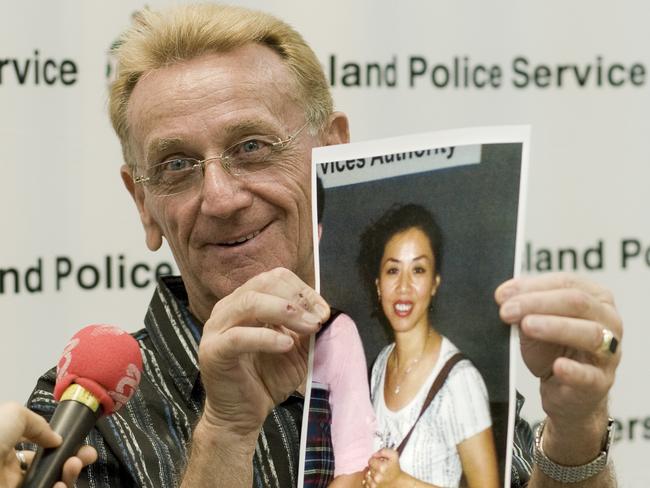
He gave Da a ring belonging to his first wife, Monika, and said he wanted to marry her. She wrote him a “love letter” before she flew home to Thailand when their online relationship continued in earnest.
Dozens of personal emails highlighting the extent of their relationship were exchanged for months.
With limited English when she arrived in Australia in 2005, Ms Cao had gravitated to several other Chinese women living in Cairns and formed a tight circle of friends.
This circle would eventually prove a key piece to Andres’ undoing.
On the night of October 30, 2011, just after 9pm, Ms Cao would use her mobile phone to log onto the internet for 19 minutes.
This would be the last trace of her.
Nine days later and after multiple attempts to contact her, three of Ms Cao’s friends walked into Cairns police station on Sheridan Street and reported her missing.
And so began the massive police operation to find her, one which quickly evolved into a homicide investigation.
In a strategic move police arranged for Andres to front a media conference to appeal for public information.
Smiling and waving towards the television cameras, he openly discussed the couple’s long-running marriage problems, as he sat beside the Far North’s former Detective Inspector Bruno Asnicar.
Andres claimed his wife of five years had likely left him, citing the two previous times where she had walked out and stayed with friends.
Brazenly, he spoke to journalists, describing his wife as having an “eccentric temperament” and a “rebellious attitude” before claiming he was “shitty” that she had left.
“My marriage was never really a marriage. She never talked to me nicely,” he said.
Eleven days later Andres was arrested for his wife’s murder.
Shockingly, this was only the first chapter of the horrible tale as his gruesome attempt to cover up what he had done was revealed.
From his trips to Bunnings to buy hydrocloric acid, to neighbours recalling watching him hose out a wheelie bin full of liquid, white foam and a “minced substance” down his driveway and into a drain, the police pieced together the horrible truth.
Ms Cao had become the victim in one of the most shocking murders the region, even the country, had ever seen — killed by her husband then liquefied in a bin filled with acid.
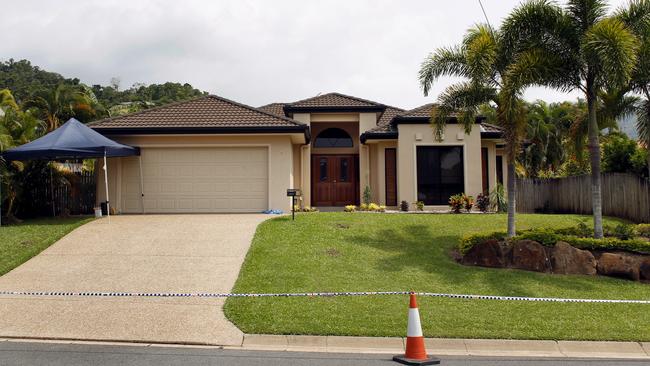
THE WIFE: A WHIRLWIND CHINA ROMANCE
LI PING Cao was a nervous woman in a foreign land as she first found her feet in Australia.
She barely spoke the language and the only person she knew was her new German partner Klaus Andres, who had urged her to make the move.
The couple met in 2005 and spent four days together in her home city of Dalian, a thriving seaport of more than three million people in the Liaoning Province, east of Beijing.
He returned to Australia but would come back to visit her five times within the next nine months before she joined him in Australia on a temporary visitor visa in October 2006.
They were married six weeks later. She could not know that over the next five years her new husband would seek the company of many other women, becoming entwined in a love affair and ultimately becoming her killer.
Mary Low, from the Cairns and District Chinese Association Inc, remembered meeting the 42-year-old for the first time.
“Her and her husband came to our office,” she said.
“She’d only just arrived in Cairns and she didn’t know anybody.
“Her English wasn’t good so she wanted to meet some other Chinese people she could speak to.”
Ms Low recalled seeing her several times in the months after she had arrived.
“She was a really lovely lady,” she said.
“She always had a smile and was always interested in what you were doing.
“I know it was hard for her. To try and function in a country where English is not your first language is very difficult.
“But I don’t think she had trouble making friends.”
Ms Cao got a job at a Manoora Chinese restaurant and developed a close group of friends, some of whom she began to turn to when her relationship with Andres began to break down.
Determined to make a go of her new country Ms Cao began attending Cairns’ TAFE campus to learn English.
It was there she met another friend, Judy Cho.
“She was a lovely lady,” Mrs Cho said.
“I just knew her just a bit because we went to the same school.
“She had some good friends here in Cairns.
“But I don’t think her husband liked her going to TAFE.”
Late in 2010 the couple, along with Ms Cao’s son, Heng Min Gong, who had been staying with them for several months, visited China.
She had been having ongoing dental problems and paid a visit to her dentist, who fitted four porcelain teeth.
The couple flew home after a month, leaving her son behind, and she was then examined by another dentist at the James Cook University clinic, who warned far more extensive work was required.
It was during her final trip back to China alone in 2011 that her dentist fitted a further six porcelain teeth.
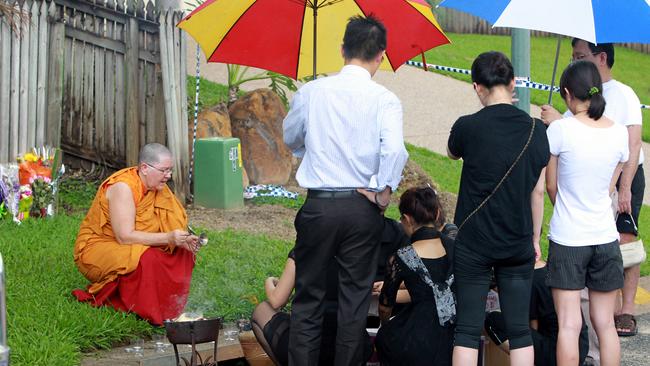
Weeks later, those 10 teeth would be all that remained of Ms Cao — the rest of her dissolved in acid by her husband.
Telling that to family was difficult for the Cairns officers on the case.
Led by Detective Sergeant Brad McLeish, officers sat down in a Cairns Police Station meeting room with Ms Cao’s family and friends, including her sister, Li Huan Cao.
Through an interpreter, officers had to explain the gruesome reason why her body would never be recovered.
A week after Andres was charged with her murder, detectives allowed mourners access to the area around the house, which was now a crime scene, to pay their last respects.
In a moving Buddhist reincarnation ceremony, held where a person has died to pave the way for their spirit to enter the next life, Ms Cao’s sister collapsed and sobbed as she burnt incense in front of a traditional shrine.
Two years later, her sister and son would reveal the bond they shared with Ms Cao in front of a packed courtroom.
“Dear Sis, how are you in heaven?’’ her sister wrote in a heartbreaking statement.
Her son Mr Gong also shared a glimpse into their close relationship.
“Where there is Mum, there is home … but where are you Mum, where is home?’’ he wrote.
“For the last few days, I cannot feel my heart beat.
“(How could I) know this kind of pain would break my heart into pieces?’’
For two years the family patiently waited for their day in court dealing with their own private hurt, as police pieced together gory detail after gory detail of what had happened to Ms Cao.
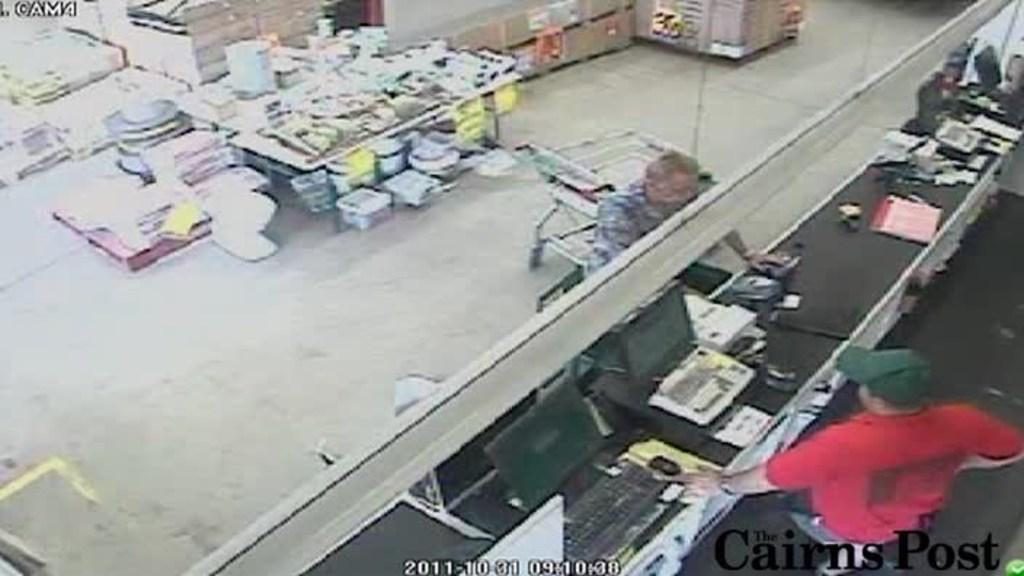
THE POLICE: BREAKING BAD COMES TO CAIRNS
IT literally began as a bit of a joke based on cult television hit Breaking Bad.
With Li Ping Cao’s bank records in their hands, showing a transaction at Bunnings four days after her disappearance, Cairns detectives Brad McLeish and Josh Riles chuckled as they drove towards the Spence St store saying: “What if her husband Klaus Andres had used her card to buy acid?”
CCTV footage from inside the store wiped the smile from their faces.
This was no joke, and as they watched in shock as Andres reached the front counter with 40 litres of hydrochloric acid they knew they had a key piece of the puzzle.
The next step proved a lot trickier and required some left-field thinking.
“If you Google it everyone will say that you don’t use hydrochloric acid to dissolve bodies; it just doesn’t work,” Det Sgt McLeish said.
“Basically we had to prove in a seven-day period that he could have dissolved a human body and got rid of it and that’s what was seen going down the driveway by these other witnesses.”
And so began the “pig experiment” to find out if Klaus Andres had killed his wife of five years and then disposed of her body in a wheelie bin full of acid.
Armed with a theory, they travelled to a rural police facility near Mareeba and dumped the dead bodies of two 50kg pigs into tubs of hydrochloric acid.
Over the next week a couple of officers had the stomach-churning task of checking the tubs. The contents of one was stirred daily while the other was left to fester.
By the final day the stirred concoction had been reduced to slush — 300 grams of tissue and bone.
The other remained only half dissolved.
The smell was unimaginable and the contents simply described as “gross”.
Andres’ first trip to Bunnings to purchase 20 litres of acid came just 12 hours after Ms Cao’s last known activity when she used her mobile phone to access the internet for 19 minutes on October 30, 2011.
He would return three days later to buy a further 40 litres, this time using his wife’s credit card.
His antics in the days after her disappearance was played out via CCTV captured around the city.
Using bank records, witness statements and surveillance, police were able to place him at the Commonwealth Bank ATM on Lake Street, in the pokie room at Brothers Leagues Club and twice unloading items, including a secret weapons stash, into an Earlville storage shed.
On November 20, 2011, detectives made their move.
Andres and his son, Ralf, were called into the Cairns police station for interviews with detectives McLeish and Riles.

Without Andres’ knowledge, fellow detectives, uniformed police officers, forensic specialists and scientists then descended on his Chapel Close residence and declared it a crime scene.
After a marathon interview, which ran intermittently throughout the day, Andres was finally arrested for murder at 5pm.
Over the next few days officers seized computers, phones, paperwork and various items.
They found Ms Cao’s mobile phone buried in an urn containing the ashes of Andres’ first wife, Monika, and observed patches of grass in the front yard seemingly “burnt”.
They also excavated two truckloads of gravel from a stormwater drain in front of the house, trawling meticulously through it to find 10 porcelain teeth.
At that stage they were unaware Ms Cao had several false teeth fitted and it required months of work to track down her Chinese-based dentist and confirm it.
Over the past year, Ms Cao had undergone major dental work twice in China as well as having an examination at the James Cook University dental clinic.
While the house became the focal point of the investigation for several days, other officers took to the streets.
“We went and spoke to all the witnesses we had identified but didn’t want to approach until we had Klaus in (custody),” Det Sgt McLeish said.
Among those was the brother of Andres’ new Thai mistress Sarunrat Kongrat, or “Da”, who he had met several months before at the Reef Hotel Casino while Ms Cao had been home in China.
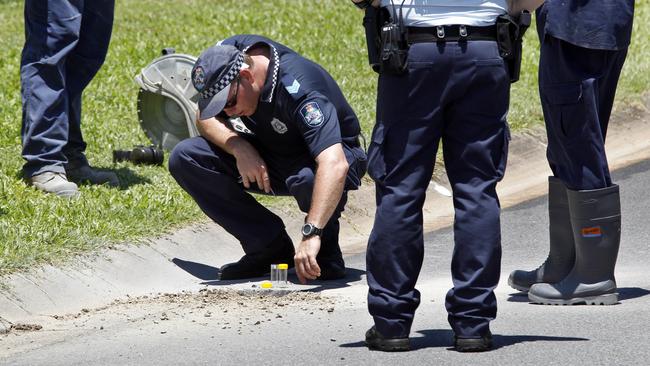
Ms Kongrat’s brother Uthai Ratsu revealed to police Andres had paid a visit to his Kuranda home recently.
“He said, ‘Klaus came up and saw me and he had Li Ping’s licence and he said that Da could come back over from Thailand and take over Li Ping’s licence’,” Det Sgt McLeish said.
They also followed a Centrelink paper trail, confirming Andres’ had forged his wife’s signature in a request for her payments to be deposited into his account after she had died.
At the peak of the murder investigation, which became codenamed Juliet Haven, more than 20 detectives were working on the case out of a major incident room set up in the Cairns Criminal Investigation Branch, along with a string of forensic and scientific officers.
International assistance came through the Australian Federal Police. Expert witnesses were also found, from a forensic odontologist who could determine the country the porcelain teeth were manufactured in, a handwriting expert to determine whether the Centrelink letter was a forgery, telephone company representatives to help trace calls, through to various doctors.
They had their man and the evidence was piled high but who they were dealing with was only just emerging.
FINALE: THE UNDOING OF A PSYCHOPATH
MARRIAGE is rarely simple.
Most people will argue with their spouse at some point.
Some will even cheat.
Divorce is no longer a social stigma and statistics continue to rise around the world.
But it takes a special kind of twisted evil to inflict the kind of horror Klaus Andres did on his bride of five years Li Ping Cao.
It has been seven years since the ageing, wiry German did the unthinkable by turning his neat, quiet suburban Brinsmead street into the most disturbing of crime scenes.
A place where he washed the remnants of his wife, who he had dissolved in acid, down his driveway and into a drain in early November 2011.
So casually had he undertaken this depraved task, he may as well have been cleaning up after a party. There was a complete lack of humanity to it that most people have struggled to comprehend.
As the police at the heart of the investigation grew to understand him they discovered an egomaniac — a self-obsessed, greedy man without a shred of compassion, who was plotting his next love tryst while simultaneously planning the demise of Ms Cao.
“Klaus Andres was completely self-absorbed, it was all about him,” Cairns police detective Sergeant Brad McLeish said.

“He had no genuine feelings of remorse or regret for what he had done to Li Ping.
“I’d describe him as a psychopath. That’s the only word I can use for him.”
His arrogance ultimately proved his undoing.
He was so determined to acquire possessions that he refused to throw away items that later would become key pieces of evidence.
Ms Cao’s phone was found in an urn containing the ashes of his first wife, Monika, who died from cancer in 2005.
Ms Cao’s friends had continued to try to reach her after her disappearance on October 30, 2011, but instead of disposing of the device Andres kept it and likely used it to make prank calls to several of her worried friends after she had died.
He hired a computer technician to have her laptop translated from Chinese into English just so he could keep it for himself.
He handed out Monika’s jewellery like bizarre trophies, giving some to Ms Cao during their relationship and a ring to Thai woman Sarunrat Kongrat or “Da”, who became his lover months before Ms Cao’s death.
Even as he stood in a courtroom six months before his murder trial in 2013, he continuously motioned to Ms Kongrat as she gave evidence, questioning why she was not wearing the ring.
In the days after Ms Cao’s disappearance police asked Andres to hold a press conference for the purpose of calling for information from the public.
Instead of acting like a distressed husband he played up to the cameras, asking which was his “best side”.
When the cameras stopped rolling, he propositioned one of the journalists and asked for her phone number.
These were among the absurd actions of a man who appeared to have the most innocuous of backgrounds.
Born and raised in Germany, he and Monika along with their son Ralf, moved to Australia in 1982.
He held various jobs, mostly involving warehousing and logistics, and the family moved around quite a lot. He spoke of his career progression during his lengthy police interview, about his huge success and his invaluability as an employee.
Eventually the family settled in Cairns, but it was here Monika became ill and died.
His criminal history was virtually non-existent before 2011 despite neighbours hearing arguments between him and Ms Cao, mostly over money.
Ms Cao’s immigration agent John Young, who met the couple when she first moved to Cairns in 2006, initially described a couple madly in love, but watched the relationship fall apart before his eyes.
They had been forced to put together a strong case for Ms Cao to be allowed to stay in the country, highlighting the strength of their relationship, which immigration officials accepted. But about a year before her disappearance Mr Young said things changed.
“I thought they were in love, you could see they were a happy couple, but then it all went sour,” Mr Young said.
“You would sit with them in a meeting and I could see Klaus trying to hold her hand and she was pushing it away.”
He described one day when Andres barged into his Sheridan St office demanding all of Ms Cao’s documents, which he refused to provide after realising her signature on a consent form was forged.
Days later Ms Cao raced into the office and “looked like she was scared”, before Mr Young assured her he had not given Andres the items.
“I didn’t like him (Andres) from the start, the way he was talking and demanding things,” Mr Young said.
He recalled watching Andres in a televised media interview after Ms Cao disappeared and feeling confident she had met with foul play.
“Knowing what I thought of the guy and knowing how nasty and vindictive he was, I thought it (something sinister) might have happened,” he said.
“I remember I turned to my wife and said, ‘I bet you any money he’s killed his wife’.”
Criminal profiling expert Claire Ferguson said offenders like Andres frequently become victims of their own egos.
“What we mainly see with those offenders is their greed and history of manipulative behaviour gets the better of them,” she said. “This is because they are often so arrogant that they think they can get one over the police.
“They tell these stories and they are easily verifiable or not. But they don’t realise that police will check out these details because they think they (police) believe them.
“He was used to having people believe his lies.”

So thorough was the case built against him, Andres pleaded guilty to dissolving his wife in acid just before his murder trial began in 2013.
But he maintained her death was accidental, claiming she had stabbed him with a fork so he pushed her and she fell, hitting her head and dying from injuries suffered when she struck the ground.
The jury didn’t buy it though, and after one of the most dramatic trials in Cairns’ history, the verdict was guilty.
However, he refused to go quietly and took the case initially to the Court of Appeal and eventually the High Court.
In March 2016 the High Court ruled it had no interest in hearing the matter, closing his last legal window. The final chapter came in July 2016 when police decided not to pursue any further six more minor charges laid against him.
The world will likely never know how Li Ping Cao died or what happened in her final few hours.
For her family though, they finally got justice, and memories of a happy, loving woman.
For her husband, Klaus Andres, he is sitting in a prison without the possessions he so desired. His soul left to slowly rot away.
This story was originally published by The Cairns Post in December 2016 as a four-part series
Originally published as Klaus Andres murdered his wife and dissolved her body in acid

